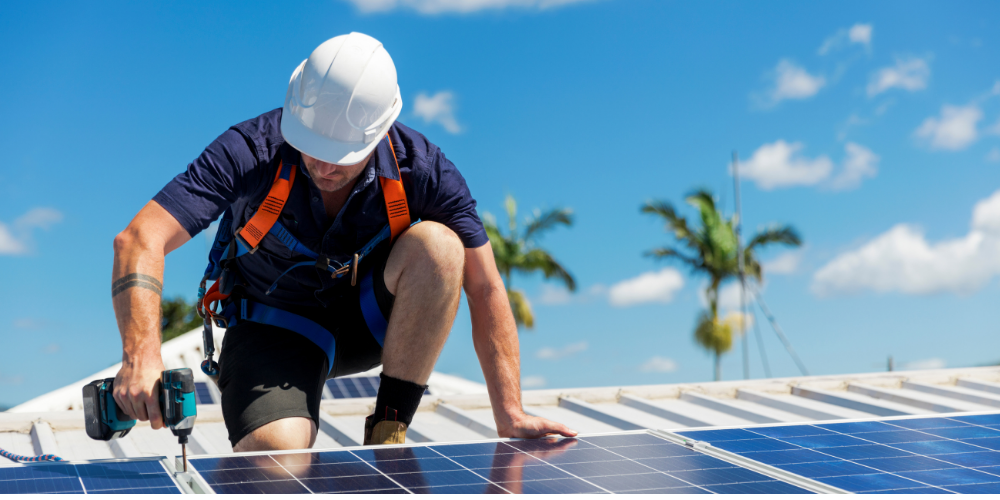Solar Batteries During Winter: Will It Work?

Installing solar battery storage can help you gain energy independence and help you live off-grid, even with a small solar system. However, the ideal battery temperature is far from ideal most of the time. During winter, as battery temperatures drop, so does the efficiency of your battery storage structure.
And while some people go for net-metering systems and diminish their need for a solar battery system, many solar panel owners decide to go completely off-grid. With a rooftop solar system and a solar battery pack, you can power your entire household. However, during winter, you may wonder what to do with cold batteries as their efficiency drops, and your energy needs increase.
Does The Performance Of Batteries Deteriorate During Winter?
During wintertime, the performance of batteries deteriorates significantly. For every 15-20 degrees in temperature drop, the performance of batteries drops by around 10%. With some battery systems, it is possible to install them indoors and protect them from the winter weather. Some other batteries, such as lithium-ion, have built-in heaters so that they can keep peak performance in all weather conditions.
9 Tips To Keep Solar Batteries Warm During Winter
Regardless of the type of your solar battery and the location, it is installed in, there are things you can do to increase their winter weather performance and to help extend their cycle life. The battery storage process and winterization are important factors that all solar panel owners should take into consideration. Here are nine tips for keeping solar batteries warm during winter
Purchase The Right Batteries
The first thing to know is that not all batteries perform equally as well in cold temperatures. In general, lithium-ion batteries and AGM batteries perform better in low temperatures. Compared to lead-acid batteries, they are a better solution for the northern climate.
Place Your Lithium-Ion Batteries Inside Your Home
Lithium-ion batteries are safe enough to bring inside your home. This protects them from harsh weather conditions. Furthermore, in case of any repairs or regular maintenance, they are much easier reached if inside.
Year Round Maintenance
Once a year, you should do the regular maintenance of your batteries. While it may be true that batteries are very durable, it is also true that they are very expensive, and you should do what you can to prolong their lifespan. Your battery pack needs good ventilation, distilled water top-off, connector checkup, battery rotation, as well as battery equalization. Have an expert take care of your solar power pack.
Inspect Your Battery Pack
Regularly inspecting your battery pack is equally as important. Some batteries in a power pack may never be able to reach their full charge, while others may overcharge. All this can bring about some issues with the functionality and even cause your battery pack to deteriorate in quality and capacity. You should also inspect your battery pack after long holidays or periods of no use.
Add A Battery Powered Garden Thermometer
A battery-powered thermometer will help you monitor the temperature of your battery pack and the ambient temperature. In case your battery pack gets too cold during cold winter nights, maybe it is time to put some insulation in place. Extremely hot or cold temperatures can damage your solar batteries, so keeping track of the temperature can help you prevent this damage.
Consult With An Expert
Consulting with an expert can give you a lot of information about how to protect your battery bank. An expert respects cold conditions and knows how to protect the batteries from a cold environment. Follow expert advice and ensure reliable power generation and storage.
Insulate Your Batteries
The place you keep your batteries in should have at least some insulation to protect from seasonal weather. With proper insulation, the temperature fluctuations can be minimized, and your battery bank can give an even power output both during winter and summer. Insulation should be placed before the actual installation.
Create A Battery Shelter
Your batteries already have protection against the elements. However, providing additional shelter will increase the efficiency of battery terminals and prolong their cycle life. During winter, when power generation is reduced, providing shelter can help most batteries operate effectively and store more solar power in off-grid systems.
Have A Small Heating Vent
A small heating vent can help keep your batteries warm. In the case of an RV, a boat, or even a house, this may be necessary to aid batteries and their performance during the cold winter months. An insulated box will not take much power to heat up.
How To Prepare For An Off Grid Hibernation

If you are getting ready to spend some time outside of the house and are worried about your solar panels, there are things you should do to prevent any damage to your solar system. If you are connected to the grid and use net metering, then no worries: regular maintenance is all you need. However, if you have an off-grid system, follow our tips and ensure you can safely harvest energy upon return.
Do An Inspection Every End of The Season
At every end of the season or calendar year, you should do a thorough check of your solar system. This inspection should be done by a professional: a certified technician or an electrician should inspect your batteries. The same goes for your solar panels and all the wiring.
Fully Charge Your Batteries
All batteries self-drain if left unused for a long time. Fully charge your batteries to ensure there is enough juice in your system when you return. You should not leave them fully charged very often, though: most battery types, including lithium-ion, prefer to remain 40-80% charged.
Turn Off Your Inverter and Any DC Loads
If you will be away for a while, fully charging your batteries and turning off your inverter is a smart thing to do. This will prevent any possible accidents and ensure the longevity of your solar system. Be careful not to leave your solar system and battery pack for too long, as the self-discharge could completely drain your batteries in a matter of months.
Difference Between Turning Off/On Your Charge Controller
This may seem counterintuitive, but depending on your environmental conditions, you may want to turn off your solar charge controller. This is because your charge controller is a small DC load on the battery system. And while it keeps charging the batteries when it is on, if snow falls on your solar panels and cold weather persists for a while, your panels will not be able to recharge. In this case, the charge controller will slowly drain your batteries.
Boost Your Solar Panels’ Winter Performance
A solar panel system is the least efficient when we need it the most: in the wintertime. There are ways to boost your solar system’s performance in the winter:
- Do a thorough cleaning before the first snow,
- Inspect the area for any shade that the low winter sun may be casting on the panels,
- Install a second array of vertical panels to prevent snow buildup,
- If possible, increase the steepness of your panels to help them shed the snow, and
- Put your charge controller in low-power, low-performance mode.
FAQs
How do you keep lithium batteries warm in cold weather?
Installing your lithium-ion battery pack inside is the best way to protect them from cold weather. Furthermore, your batteries should be ultimately located in a place with an ideal temperature (60-80 degrees Fahrenheit) with extra insulation. Installing a thermometer and heat ventilation can make a big difference in how well your batteries are stored in the winter.
How do you store solar batteries outside?
Different seasons pose different challenges for your deep cycle batteries. Your batteries should be stored in a place that offers enough insulation against both heat and chilly conditions. Furthermore, your batteries should be protected against snow, wind, and rain.
Does freezing batteries preserve them?
No, freezing batteries do not preserve them. Any cold and moist conditions can cause corrosion on your batteries and significantly degrade their performance. Always keep your batteries in a dry, insulated place to keep their rated capacity for a long time.
Can you charge a frozen battery?
A frozen battery should never be charged. If left out in the cold weather for a long time, you should let your battery thaw before attempting to charge it again. Have a professional assess if the battery is in good shape before using it for a long time. This is the only way to ensure the battery will not give up on you when you need it the most.
Conclusion
As more people decide to install battery packs and increase their energy independence, the need to store them safely during winter becomes more apparent. Cold weather and moisture, combined with less sunshine, will put extra strain on your lead-acid batteries and lithium options. Follow our tips and win the final battle to ensure your solar solutions work year-round.
Updated on



